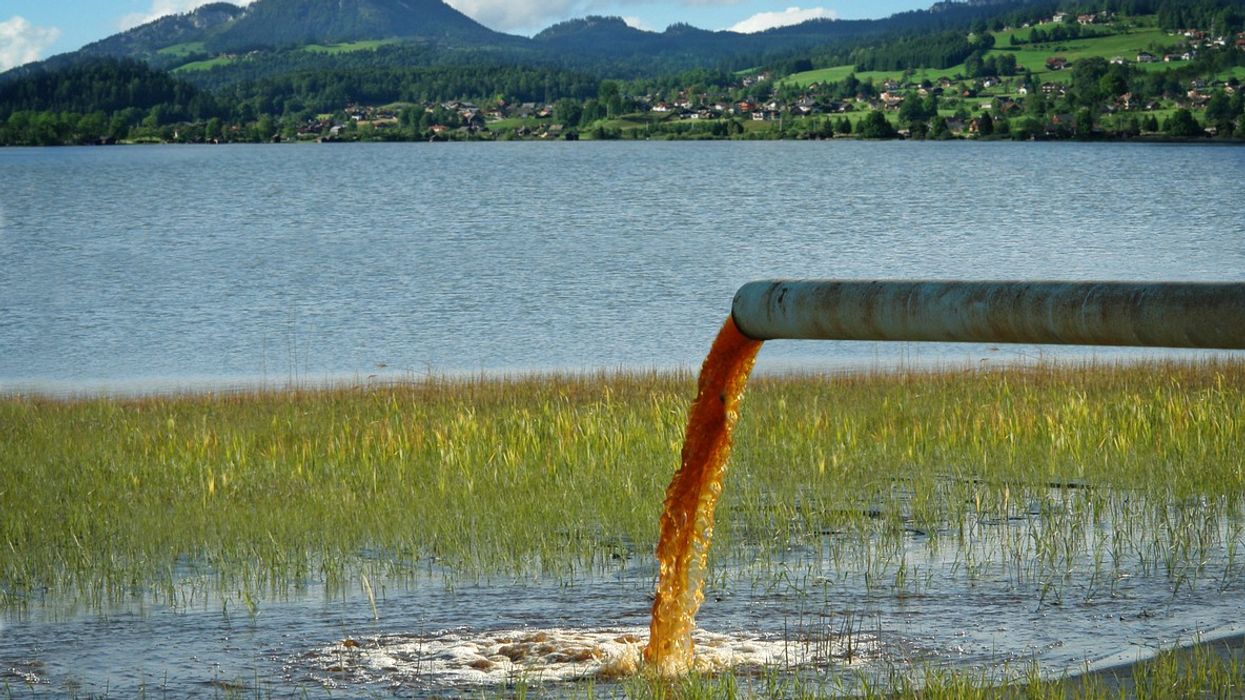Dispatches has discovered the enormous scale of illegal raw sewage dumping across the UK with more than 870 sewage discharge pipes across the country without permits and potentially in operation. Without a permit, it is illegal for water companies to dump untreated sewage from these pipes - which allow sewage and rainwater to spill out into our rivers and our seas during times of high rainfall.
Obtained using Environmental Information Regulation requests, the film reveals that:
1. Welsh Water has 184 sewage discharge pipes without permits and says they are all in use.
2. Northumbrian Water has 61 sewage discharge pipes without permits, and says all are in use.
3. Severn Trent has 420 sewage discharge pipes without permits but failed say how many are being used.
While sewage discharge pipes with permits to spill are intended only to be used in times of extreme weather, Dispatches hears from Nick Voulvoulis, Professor of Environmental Technology at Imperial College London, who says “we have CSOs [Combined Sewage Overflows] used even in some cases when it doesn't rain or when it is not extreme rainfall.”
Britain’s Water Scandal investigates why water companies are still dumping untreated sewage into our rivers and seas.
Asked by Dispatches why they are not at capacity, Professor Voulvoulis cites increased water usage that is not met by adequate investment in upgrading infrastructure. Despite consistently “shocking performance”, top bosses were compensated nearly £25m last year.
Dispatches also asks if regulator, the Environment Agency, is up to the job of policing the water companies, in light of cuts to its budget. Between 2010 and last year, its annual budget for enforcement fell from £11.6m to £7m.
Whistle-blower Helen Nightingale, who has recently retired from the Environment Agency after 30 years, speaks for the first time about her concerns funding cuts have had on the Agency’s ability to enforce environment protection regulations.
Speaking to Dispatches she says: “The funding's been cut massively… so we have fewer officers to go out and do the work…We are only supposed to attend the very serious or quite serious incidents. The lower impact incidents… environment officers are told not to attend them. We aren't as aggressive… we don't enforce to the same extent against water companies…now water companies investigate their own incidents and tell us what category it is.”
Alastair Chisholm, Policy Director at The Chartered Institution of Water and Environmental Management, when asked if Ofwat and the Environment Agency are up to the job, says: “They haven't had the capacity to do what they need to do”. Asked what failure to invest in maintaining and upgrading Britain’s sewer system may result in, Chisholm says: “We're going to keep having rivers and seas receiving a whole load of sewage.”
Dispatches exclusive: Possible faecal pollution in ‘excellent’ beach 40 times higher than usual
Dispatches tested for faecal indicators at Ryde beach on the Isle of Wight, a beach the Environment Agency says has excellent water quality. Tests were carried across one week, and the results shows that on one day the indicators of faecal pollution in the water were more than 40 times higher than on the other days. The indicators do not specify the source of faecal pollution but data from the local water company shows that on the day of the high result, untreated sewage was released at the beach for over two and a half hours.
Regulation around testing of bathing waters states that results can be discarded when the conditions that cause the pollution are so abnormal, they will only happen once every four years. At Ryde, results were discarded 3 times last year alone.
238 beaches have an excellent water quality rating from the Environment Agency. Yet at 133 of the 238, there were over 3,000 raw sewage spills in total last year.
Southern Water told us: “Southern Water is investing record amounts to improve customer service and protect the environment. We are working on reducing reliance on the storm release system.”
Severn Trent, Northumbrian and Welsh Water told us they are working proactively with the Environment Agency to ensure the correct permits are in place for all storm overflows.
Thames Water told us: “We believe it is unacceptable for untreated sewage to enter rivers, even when legally permitted and we take this matter very seriously. We are already taking action to reduce discharges across London and the Thames Valley by 2030”
“The site has not discharged untreated sewage since March 2021” and the material entering the river from the outfall pipe filmed was “within its permit limits”. “We accept that it is unsightly and are working towards improving the situation.”
The Environment Agency told us: “Water companies have rightly been condemned for allowing far too many sewage spills and we are holding the industry to account on an unprecedented scale. We operate within a tight budget and must prioritise, to ensure we are doing the best we can”
The Department for Environment, Food and Rural Affairs told us: “Water companies’ reliance on overflows is unacceptable and they must significantly reduce how much sewage they discharge as a priority”. Under new plans "They will face strict limits and must completely eliminate the harm sewage discharges cause to the environment.”
The Water Services Regulation Authority (Ofwat) told us:
"We take our responsibilities on the environment extremely seriously and are pushing companies to do the same…. Where we find that companies have fallen short, we will act… Over the last five years… we have imposed penalties and payments of over £250 million.”
BRITIAIN’S WATER SCANDAL: DISPATCHES IS ON CHANNEL 4 AT 19:30, MONDAY 29 AUGUST




